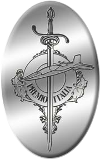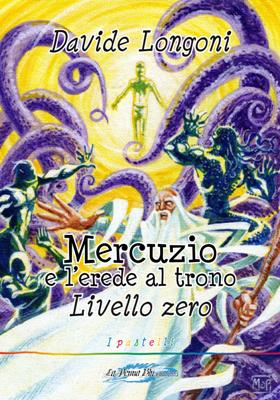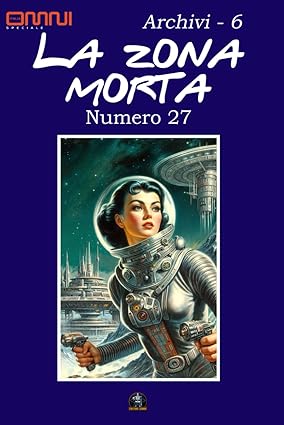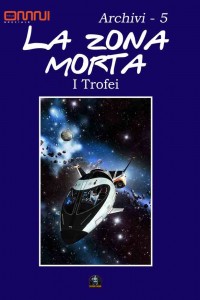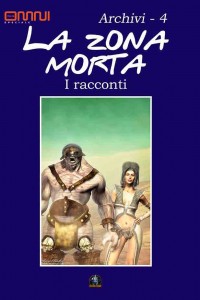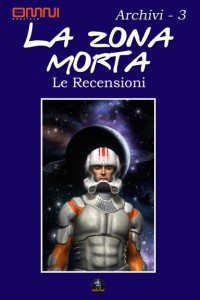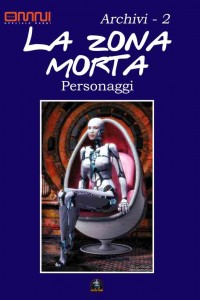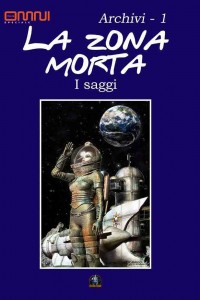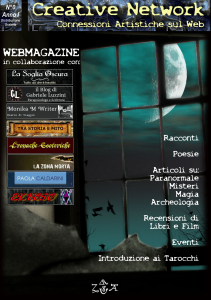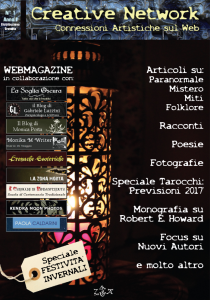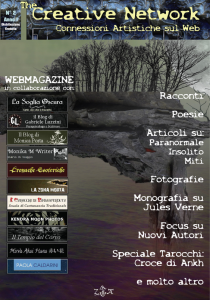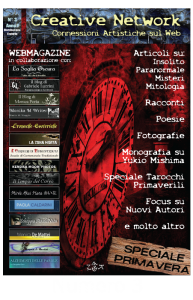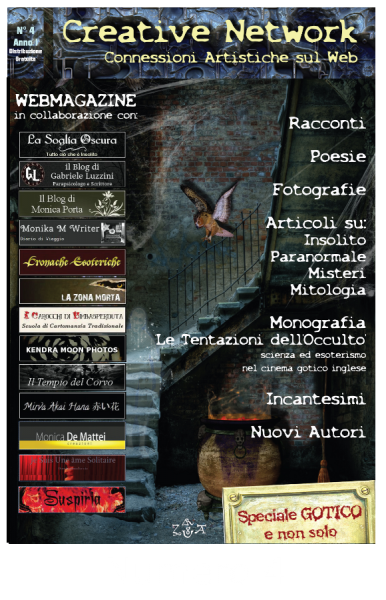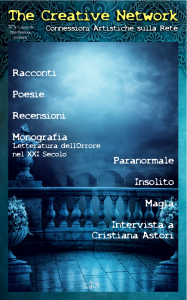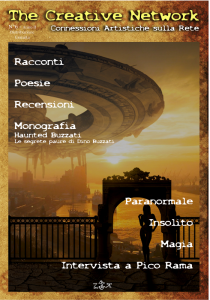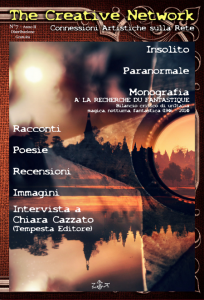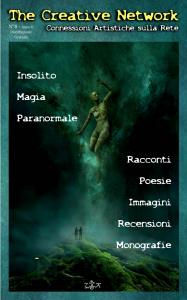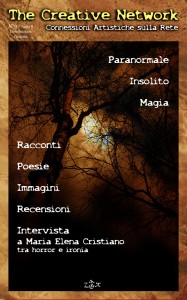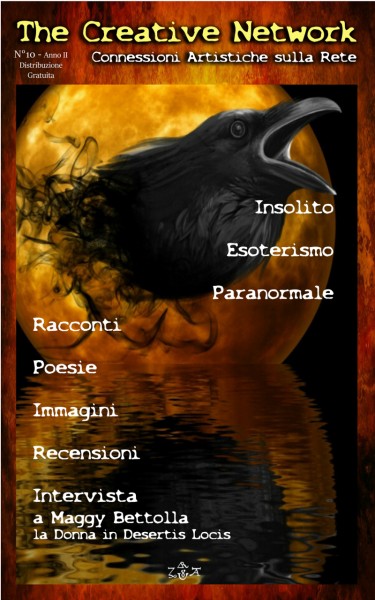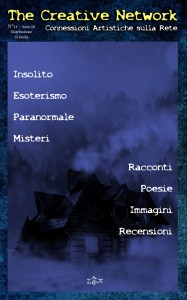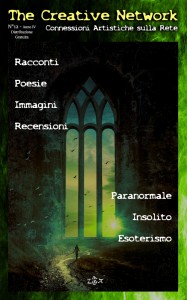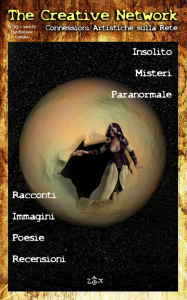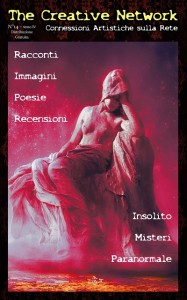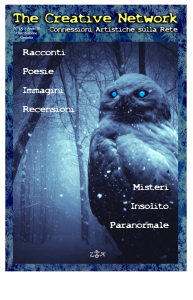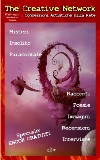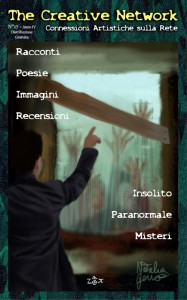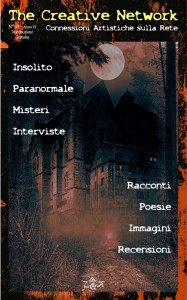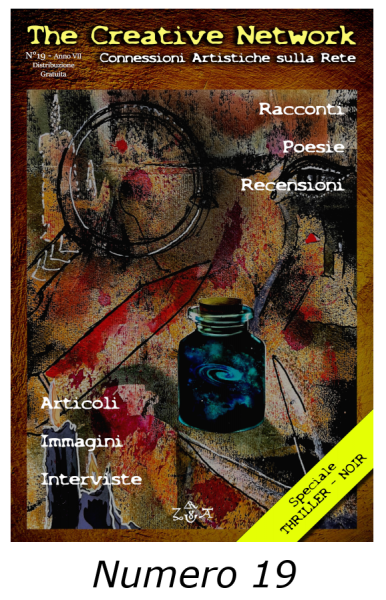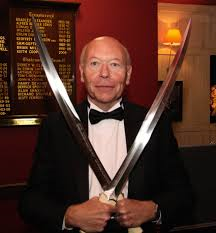 Autore della saga degli “Orchi”, Stan Nicholls è una delle figure più interessanti del panorama letterario fantasy internazionale degli ultimi anni. Approfittando della sua presenza al “PANDINO FANTASY BOOKS 2014”, siamo riusciti a raggiungerlo e intervistarlo per voi. Ecco cosa ci ha raccontato.
Autore della saga degli “Orchi”, Stan Nicholls è una delle figure più interessanti del panorama letterario fantasy internazionale degli ultimi anni. Approfittando della sua presenza al “PANDINO FANTASY BOOKS 2014”, siamo riusciti a raggiungerlo e intervistarlo per voi. Ecco cosa ci ha raccontato.
PRIMA DI TUTTO, CHI E’ STAN NICHOLLS E COME HAI INIZIATO A SCRIVERE?
Sono nato a Londra, in una famiglia molto povera; nel senso di povera come si può essere e avere ancora un tetto sopra la testa. Non ho mai conosciuto mio padre, che ha abbandonato mia madre prima che io nascessi, e sono stato allevato da mia madre, mia nonna e varie zie. Penso che questo potrebbe essere il motivo per cui ho sempre avuto una certa affinità con le donne. I miei amici più stretti tendono ad essere femmina, e i personaggi femminili che creo sono di solito quelli che mi piacciono di più.
Non c’erano in verità molti libri nella casa dove sono cresciuto, ma fin dai miei primi giorni sono stato affascinato dalle parole e dalle storie. Non so da dove sia venuta questa passione. La scuola che ho frequentato era piuttosto pericolosa, e il modo migliore per sopravvivere era essere bravo a combattere o bravo a scappare. Non ero molto bravo in entrambi. Ma potevo inventare storie, e scherzare, cosa che mi ha fruttato una sorta di accettazione e mi ha aiutato a sopravvivere giorno per giorno. Non lo sapevo allora, ma suppongo che fosse come Scherazade in The 1001 Nights! Non ero particolarmente un bravo studente, tranne quando si trattava dei corsi di inglese, dove spesso eccellevo su tutta la mia classe per la scrittura dei saggi.
Quando avevo nove anni ho scritto il mio primo romanzo. Naturalmente è ridicolo chiamarlo un romanzo. Ho usato un quaderno a righe e alcune penne colorate che qualcuno mi aveva dato. Sapevo che i romanzi avevano qualcosa chiamato capitoli, ma non sapevo quanto lunghi avrebbero dovuto essere. Così ho fatto per ogni pagina un nuovo capitolo. La storia riguardava tre bambini, e il loro coraggioso cane, che vedevano dei dischi volanti sopra una solitaria brughiera avvolta dalla nebbia. Nessuno dei loro genitori gli crede, ma alla fine i ragazzi riescono a prevenire un’invasione aliena. Naturalmente questo cosiddetto romanzo era completa spazzatura. Ma già da allora ero affascinato dai soggetti fantastici; un amore per la fantascienza, il fantasy e i racconti soprannaturali che è stato con me tutta la vita.
Quindi fin dall’infanzia desideravo essere uno scrittore, ma in qualche modo sapevo che era una professione difficile per sfondare e viverci. Volendo stare vicino ai libri, e per imparare qualcosa su come il commercio funzionava, il primo lavoro che ho intrapreso dopo la scuola era con una compagnia esportatrice di libri. Questa società ha fornito libri in inglese per biblioteche e università americane, e lavorava in collaborazione con il British Museum di Londra e la Biblioteca del Congresso di Washington. Ogni libro pubblicato in Gran Bretagna ha attraversato questa società nel suo cammino verso gli Stati Uniti, e io li ho gestiti tutti. E’ stata una formazione affascinante nel mondo dei libri.
Alla fine ho lasciato quel lavoro per avviare la mia libreria, insieme a due soci, nel distretto di Notting Hill a Londra. In seguito mi sono trasferito per gestire una libreria specializzata chiamata Dark They Were and Golden Eyed, a quel tempo il più grande negozio di fantascienza e fumetti d’Europa. Poi sono stato assunto come responsabile del primo bookshop Forbidden Planet, il rivenditore di fantascienza che ora è una catena internazionale.
Durante tutto questo tempo stavo scrivendo, scribacchiando in momenti strani e la sera e nei fine settimana. Ero riuscito anche a vendere alcuni dei miei scritti per compensi modesti; per lo più cose come recensioni di libri e film e articoli su fantasy e fantascienza. Ma gli anni passavano e io non ero così vicino a raggiungere la mia ambizione di diventare uno scrittore. Così nel 1981 ho deciso di fare il grande passo e ho lasciato il mio lavoro, al fine di diventare uno scrittore a tempo pieno. Ho lavorato come giornalista freelance, assumendo qualsiasi incarico ho potuto ottenere, per guadagnare abbastanza soldi, mentre mi concentravo sulla mia narrativa. Ho anche lavorato in qualità di quello che è noto come un lettore di mucchi di fanghiglia, e gli americani chiamano primi lettori, per vari editori. Ciò ha comportato la lettura di manoscritti presentati dai membri del pubblico, per vedere quelli che erano pubblicabili. Ho imparato molto da questo. Anche se, purtroppo, era soprattutto come non si scrivono i libri!
Dopo un po’ sono riuscito a interessare un agente al mio lavoro. I miei primi libri erano cose come tie-in (opere tratte da, ndr) di film e telefilm, libri di quiz e biografie fantasma scritte per celebrità del mondo dello spettacolo. Tutto ciò che potevo accaparrarmi, in pratica. Con il tempo ho cominciato a vedere le mie idee accettate. Ho scritto sette o otto titoli per young adults (letteratura per ragazzi, ndr), un settore che mi interessava, in quel periodo, prima di passare ai libri per adulti. Fino ad oggi, ho avuto più di trenta libri pubblicati.
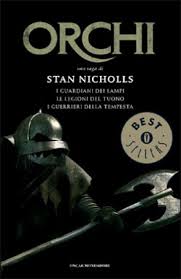 PARLANDO DELLA TUA SERIE “ORCHI”, COME TI E’ VENUTA L’IDEA E QUALI SONO STATE LE DIFFICOLTA’ CHE HAI INCONTRATO NELLA CREAZIONE DEI PERSONAGGI E DELLE AMBIENTAZIONI?
PARLANDO DELLA TUA SERIE “ORCHI”, COME TI E’ VENUTA L’IDEA E QUALI SONO STATE LE DIFFICOLTA’ CHE HAI INCONTRATO NELLA CREAZIONE DEI PERSONAGGI E DELLE AMBIENTAZIONI?
Ho sempre pensato che la mia idea di Orchi fosse essenzialmente semplice . Abbastanza ovvio, in effetti. E sono sorpreso quando la gente dice che è stato particolarmente speciale. Tutto quello che ho fatto è stato domandarmi come le cose sarebbero andate se gli orchi non fossero stati malvagi, ma semplicemente fraintesi, o travisati. Una volta avuta questa idea era logico vedere gli esseri umani come i cattivi. E’ stato un classico esempio della regole del “E se?”, una cosa che gli scrittori di sf e fantasy hanno fatto per tantissimo tempo. Ho scritto storie che si domandavano cosa succederebbe se ci fosse una piaga che uccide solo le persone che credono in Dio; e se il denaro fosse in realtà una intelligenza malvagia; e se fosse possibile prendere una malattia sessuale digitale da internet, e che cosa succederebbe se tutti nel mondo si svegliassero una mattina incredibilmente grassi – per dare alcuni esempi. Non è stato diverso, in realtà, con i miei orchi. E’ stato un caso di capovolgimento delle cose, in modo che quello che abbiamo pensato come il male fosse in realtà il bene e viceversa .
Non so dirti se ci sono state particolari difficoltà incontrate con i personaggi e i luoghi nei miei romanzi sugli orchi. Non più che in qualsiasi altro libro che ho scritto, davvero . L’ostacolo principale è stato sempre far dimenticare ai lettori l’usuale reputazione che gli orchi avevano avuto e farglieli guardare in modo differente. Stavo chiedendo alle persone di vedere queste creature con simpatia, piuttosto che come oggetti di paura e disgusto. Quella era una sfida. Ma credo che ogni libro dovrebbe presentarsi al suo autore come una sfida; qualcosa che si estende, e che forse segretamente dubiti si possa fare.
Qualcuno si è chiesto come abbia potuto scrivere libri sugli orchi, perché sottostavano all’impressione errata che gli orchi fossero stati creati da JRR Tolkien. Egli non ha creato orchi più di quanto abbia creato elfi, troll, draghi o una qualsiasi delle molte altre razze nella narrativa fantasy. I miei libri sugli orchi non sono ambientati nel mondo del Signore degli Anelli di Tolkien , né usano nessuno dei suoi personaggi o le impostazioni. Sono il mio contributo sugli orchi, ambientato in un mondo di mia creazione.
PRESTO SARAI IN ITALIA AL “PANDINO FANTASY BOOKS”. COSA PENSI DI QUESTO FESTIVAL E DEL NOSTRO PAESE?
Penso che il festival sia una grande idea. Viviamo nell’era di Internet, e la rete è meravigliosa in molti modi, ma non può sostituire l’incontrare le persone reali nel mondo reale. Ho notato che ci sono tantissimi festival e convention incentrati sul nostro amore per il fantasy e la fantascienza. Dev’essere perché gli esseri umani sono animali sociali e sentiamo il bisogno di aggregarci e celebrare le cose che ci interessano. Accolgo con favore il Pandino Fantasy Books come un’opportunità per incontrare persone che la pensano come me e nella speranza di salutare alcuni dei miei lettori italiani, molti dei quali mi hanno scritto durante questi anni per dirmi cosa pensavano del mio lavoro. Sono molto impaziente per questo.
Sono stato in Italia solo una volta prima d’ora; sette anni fa, quando mia moglie ed io decidemmo di visitare Venezia per il nostro decimo anniversario di matrimonio. Quello che vedemmo dell’Italia allora ci deliziò, così come molte delle persone che abbiamo incontrato. Abbiamo sempre avuto intenzione di ritornare e siamo grati agli organizzatori del Pandino Fantasy Books per averci dato questa possibilità.
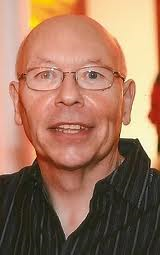 ORA UNA DOMANDA GENERALE. DOVE TROVI L’ISPIRAZIONE PER LE TUE STORIE?
ORA UNA DOMANDA GENERALE. DOVE TROVI L’ISPIRAZIONE PER LE TUE STORIE?
Mi piacerebbe saperlo. Se cosi fosse, lo imbottiglierei e lo vendere nei supermercati! Scherzi a parte, questa è una domanda che gli autori si sentono spesso chiedere, e penso che la maggior parte di noi si senta in difficoltà a rispondere. Il processo creativo è in qualche modo piuttosto misterioso. Quasi magico, si potrebbe dire.
A volte un’idea ti cade in testa completamente formata, sebbene ciò sia raro. Più spesso si tratta di una singola idea o una frase casuale, o ascoltando qualcosa di interessante. Si potrebbe intravedere qualcuno per strada che ispira un racconto, o qualcosa visto in un notiziario.
Ma, naturalmente, è proprio vero che la creatività è uno per cento ispirazione e novantanove per cento sudore. Avere l’idea è solo la prima fase. E’ quello che fai con essa che è la cosa più importante.
QUALI SONO I TUOI SCRITTORI E I TUOI FILM PREFERITI?
Sono troppi per poterli elencare, e se ci provassi sicuramente dimenticherei qualche nome e mi sentirei male per non averlo incluso. Ho letto ampiamente nei campi della fantascienza, del fantasy e dell’horror nella mia vita. Ho sempre apprezzato molto anche i film classici e contemporanei horror e di fantascienza, per non menzionare i fumetti. Ognuno di essi ha contribuito al mio piacere in questi generi e mi ha aiutato a essere il tipo di persona che sono, e il tipo di scrittore.
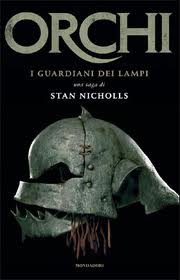 POSSIAMO ASPETTARCI QUALCHE FILM O SERIE TV BASATA SUI TUOI LIBRI? O FORSE QUALCHE FUMETTO O VIDEOGAME?
POSSIAMO ASPETTARCI QUALCHE FILM O SERIE TV BASATA SUI TUOI LIBRI? O FORSE QUALCHE FUMETTO O VIDEOGAME?
Le compagnie cinematografiche e televisive hanno espresso interesse per il mio lavoro un paio di volte negli anni, in particolare per la serie degli orchi. Ma nulla è mai venuto fuori da questi approcci. La qual cosa è al momento l’esperienza di molti autori, ho scoperto.
I film sono progetti complessi e costosi da mettere insieme, e un paio di volte ho avuto offerte che sono decadute a causa della mancanza di finanziamenti. Per essere sincero, non mi entusiasma più questo genere di cose. Quasi sempre il film o la serie tv non vengono fatti. Questa è la norma. Un’altra cosa da tenere a mente è che un film tratto dal libro di un autore non è necessariamente una buona cosa. Un cattivo adattamento di un libro può danneggiare o addirittura distruggere la carriera di un autore, perché se il film non è buono la gente tende a presumere che anche i libri devono essere così. Ho visto questo accadere.
C’è stata una graphic novel sugli orchi, pubblicata alla fine del 2012. Si chiama Orcs: Forged For War. E’ tratta da una storia originale che ho scritto, non un adattamento di uno dei romanzi, ed è stata illustrata dall’artista americano Joe Flood. La storia si svolge prima del primo dei romanzi sugli orchi, e sono rimasto molto soddisfatto di come è venuta fuori. Il libro è stato pubblicato negli Stati Uniti, nel Regno Unito e in Francia , ma purtroppo non in Italia, dove nessuno degli editori ha mostrato molto interesse.
I diritti per il videogame sono stati venduti, a una società americana, che li ha avuti per un paio d’anni. Come i film, i giochi costano una fortuna per crearli, e finora non è stato trovato il finanziamento per sviluppare un gioco. Ci sono state versioni audiobook dei romanzi sugli orchi, realizzati negli Stati Uniti, nel Regno Unito e in Germania, ma ancora non in Italia, temo.
CHE PROGETTI HAI PER IL FUTURO? QUALI SONO I TUOI SOGNI?
Continuare a respirare e continuare a scrivere.
E ora, come nostra consuetudine quando intervistiamo un autore stranieri, di seguito vi riportiamo il testo originale della nostra chiacchierata con Stan Nicholls, chiedendovi fin da ora scusa nel caso la nostra traduzione non sia stata delle migliori.
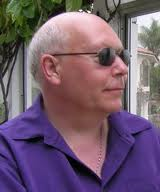 FIRST OF ALL, WHO IS STAN NICHOLLS AND HOW DID YOU BEGIN TO WRITE?
FIRST OF ALL, WHO IS STAN NICHOLLS AND HOW DID YOU BEGIN TO WRITE?
I was born in London, to a very poor family; about as poor as you can be and still have a roof over your head. I never knew my father, who abandoned my mother before I was born, and I was brought up by my mother, my grandmother and various aunts. I think this might be the reason why I’ve always had an affinity with women. My closest friends tend to be female, and the female characters I create are usually the ones I like best.
There weren’t really any books in the house when I grew up, yet from my earliest days I was fascinated with words and stories. I don’t know where this passion came from. The school I went to was pretty rough, and the best ways to survive were to be good at fighting or good at running away. I wasn’t very good at either. But I could make up stories, and crack jokes, which gained me a kind of acceptance and helped me survive day to day. I didn’t know it then, but I suppose it was like Scherazade in The 1001 Nights! I wasn’t a particularly good scholar, except when it came to English classes, where I often came top of my class for writing essays.
When I was nine years old I wrote my first novel. Of course it’s ridiculous to call it a novel. I used a lined notebook and some coloured pens someone had given me. I knew that novels had something called chapters, but I didn’t know how long they were supposed to be. So I made every page a new chapter. The story was about three children, and their courageous dog, who see flying saucers over a lonely, mist-shrouded moor. None of their parents believe them, but eventually the kids prevent an alien invasion. Naturally this so-called novel was complete rubbish. But even then I had a fascination with fantastical subjects; a love of science fiction, fantasy and supernatural tales that has stayed with me all my life.
So from my earliest days I yearned to be a writer, yet somehow I knew it was a difficult profession to break into and to make a living from. Wanting to be near books, and to learn something about how the trade worked, the first job I took after school was with a book exporting company. This company supplied English books to American libraries and universities, and it was in partnership with the British Museum in London and Washington’s Library of Congress. Every book published in the UK went through that company on its way to the States, and I handled all of them. It was a fascinating education in the world of books.
I eventually left that job to start my own bookshop, along with two partners, in London’s Notting Hill distrrict. Later I moved to managing a specialist bookshop called Dark They Were and Golden Eyed, at that time Europe’s largest science fiction and comics store. Then I was taken on as manager of the first Forbidden Planet bookshop, the science fiction retailer that’s now an international chain.
I was writing all this time, scribbling away in odd moments and in the evenings and at weekends. I was even selling some of my writing for modest fees; mostly things like book and film reviews and articles about fantasy and science fiction. But the years were going by and I wasn’t much nearer to achieving my ambition to be a writer. So in 1981 I decided to take the plunge and quit my job in order to become a full-time writer. I worked as a freelance journalist, taking any assignment I could get, to earn enough money while I concentrated on my fiction. I also acted as what’s known as a slush pile reader, and the Americans call a first reader, for various publishers. This involved reading manuscripts submitted by members of the public, to see whether they were publishable. I learnt a lot from that. Although, sadly, it was mostly how not to write books!
After a while I managed to interest an agent in my work. My first books were things like film and TV tie-ins, quiz books and ghost-written biographies of showbiz celebrities. Anything I could get, basically. In time I started getting my own ideas accepted. I wrote seven or eight young adult titles, an area that interested me at the time, before moving on to adult books. To date, I’ve had over thirty books published.
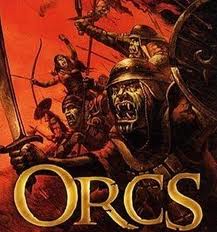 SPEAKING ABOUT YOUR SERIES “ORCS”, HOW DID YOU GET THE IDEA, AND WHAT WERE THE DIFFICULTIES YOU MET WITH THE CREATION OF THE CHARACTERS AND OF THE LOCATIONS?
SPEAKING ABOUT YOUR SERIES “ORCS”, HOW DID YOU GET THE IDEA, AND WHAT WERE THE DIFFICULTIES YOU MET WITH THE CREATION OF THE CHARACTERS AND OF THE LOCATIONS?
I’ve always thought that my Orcs idea was fairly simple. Quite obvious, in fact. And I’m surprised when people say it was particularly special. All I did was wonder how things would be if orcs weren’t evil but just misunderstood, or misrepresented. Once I had that idea it was logical to see humans as the villains. It was a classic example of the “What if?” principle, something writers of sf and fantasy have done for a very long time. I’ve written stories that asked what if there was a plague that only killed people who believed in God; what if money was actually a malevolent intelligence; what if it was possible to catch a digital sexual disease from the internet, and what if everyone in the world woke up one morning incredibly fat – to give a few examples. It was no different, really, with my orcs. It was a case of turning things upside down, so that what we thought of as evil was in fact good, and vice versa.
I don’t know that there were any particular difficulties coming up with the characters and locations in my orcs novels. No more than in any other book I’ve written, really. The main obstacle was getting readers to forget the usual reputation orcs had and looking at them in a different way. I was asking people to view these creatures sympathetically, rather than as objects of fear and loathing. That was a challenge. But I believe every book should present its author with a challenge; something that stretches you, and that maybe you secretly doubt you can do.
Some people wondered how I was able to write books about orcs, because they were under the mistaken impression that orcs were created by JRR Tolkien. He didn’t create orcs any more than he created elves, trolls, dragons or any of the many other races in fantasy fiction. My orcs books aren’t set in the world of Tolkien’s Lord of the Rings, nor do they use any of his characters or settings. They are my take on orcs, set in a world of my creation.
SOON YOU WILL BE IN ITALY AT “PANDINO FANTASY BOOKS”. WHAT DO YOU THINK ABOUT THIS FESTIVAL, AND ABOUT OUR COUNTRY?
I think the festival sounds a great idea. We live in the age of the Internet, and the net is wonderful in many ways, but it can’t substitute for meeting real people in the real world. I’ve noticed that there are more and more festivals and conventions centered round our love of fantasy and science fiction. This must be because human beings are social animals and we have a need to congregate and celebrate the things that interest us. I welcome Pandino Fantasy Books as an opportunity to meet like-minded people, and hopefully to greet some of my Italian readers, many of whom have written to me over the years telling me what they think of my work. I’m very much looking forward to that.
I have been to Italy only once before; seven years ago, when my wife and I decided to visit Venice for our tenth wedding anniversary. What we saw of Italy then delighted us, as did many of the people we encountered. We’ve always intended to return, and we’re grateful that the organizers of Pandino Fantasy Books have given us that opportunity.
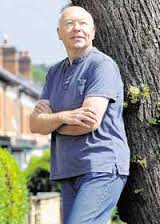 NOW A GENERAL QUESTION. WHERE DO YOU FIND THE INSPIRATION FOR YOUR STORIES?
NOW A GENERAL QUESTION. WHERE DO YOU FIND THE INSPIRATION FOR YOUR STORIES?
I wish I knew. If I did I’d bottle it and sell it in supermarkets! Seriously, this is a question that authors are often asked, and I think most of us are at a loss to answer. The creative process is in some ways quite mysterious. Almost magical, you might say. Sometimes an idea falls into your head fully formed, although that’s rare. More often it’s a single notion or a stray phrase, or overhearing something interesting. It could be glimpsing someone on the street that inspires a story, or something seen in a news report.
But, of course, it really is true that creativity is one per cent inspiration and ninety-nine per cent perspiration. Having the idea is just the first stage. It’s what you do with it that’s the most important thing.
WHICH ARE YOUR FAVORITE WRITERS AND YOUR FAVORITE FILMS?
There are far too many to list, and if I tried I’d certainly forget some names and feel bad for not including them. I’ve read very extensively in the fields of science fiction, fantasy and horror all my life. I’ve also always enjoyed classic and contemporary horror and science fiction movies, not to mention comic books. All of them have contributed to my pleasure in these genres, and helped to make me the kind of person I am, and the kind of writer.
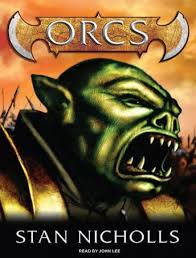 CAN WE EXPECT ANY FILM OR TV SERIES BASED ON YOUR BOOKS? OR MAYBE COMICS OR VIDEOGAMES?
CAN WE EXPECT ANY FILM OR TV SERIES BASED ON YOUR BOOKS? OR MAYBE COMICS OR VIDEOGAMES?
Film and TV companies have expressed interest in my work quite a few times over the years, particular the orcs series. But nothing has ever come of those approaches. Which is actually the experience of many authors, I’ve found. Films are complicated and expensive projects to mount, and a couple of times I’ve had deals fall through due to a lack of finance. To be frank, I don’t get excited about that kind of thing anymore. Almost always the film or the TV series doesn’t get made. That’s the norm. Something else to bear in mind is that a film of an author’s book isn’t necessarily a good thing. A bad adaptation of a book can harm or even destroy an author’s career, because if the film’s bad people tend to assume that the books must be, too. I’ve seen this happen.
There has been an orcs graphic novel, published at the end of 2012. It’s called Orcs: Forged For War. It’s from an original story I wrote, not an adaptation of any of the novels, and it was illustrated by American artist Joe Flood. The story takes place before the first of the orcs novels, and I was very pleased with the way it came out. The book was published in the US, UK and France, but unfortunately not in Italy, where none of the publishers showed much interest.
The videogame rights have been sold, to an American company, which they’ve had for a couple of years. Like the movies, games cost a fortune to create, and so far the finance hasn’t been found to develop a game. There have been audiobook versions of the orcs novels, released in the US, the UK and Germany, but again not in Italy, I’m afraid.
WHAT PLANS DO YOU HAVE FOR THE FUTURE? WHAT ARE YOUR DREAMS?
To keep breathing and keep writing.
